Believing that purely relying on scores cannot evaluate candidates' passion and ethics, many experts have proposed adding essays and interviews to medical admissions.
There are currently 27 medical schools nationwide, with the main admission method based on high school graduation exam scores, commonly in a combination of three subjects: Math, Chemistry, Biology (B00) or Math, Physics, Chemistry (A00). This year, the fact that some universities are using an additional combination of Literature for admission has caused mixed reactions.
In addition, according to Prof. Dr. Nguyen Huu Tu, Rector of Hanoi Medical University, the graduation exam no longer meets the admission target of the medical industry, especially for highly competitive majors such as Medicine and Dentistry. From 2025, the Ministry of Education and Training will reform the high school graduation exam, so medical and pharmaceutical schools also need to urgently prepare appropriate admission methods.
For many years, the benchmark for admission to Medicine has always been among the highest in the country. Last year, the benchmark for Medicine at major training institutions ranged from 26.45 to 28.15 in the traditional B00 group. The highest was at Hanoi Medical University.
However, the former head of a large medical university in the South said that he had surveyed and found that students with high entrance scores did not necessarily study well.
Dr. Dam Quang Minh, an education expert, said that some lecturers at medical schools have shared with him that many students have dropped out of school, were under a lot of stress after moving on to the hospital internship phase, or studied for 5-6 years before realizing they were not suitable.
Many students enroll in medical school thinking that if they get a high score on the exam, they should study a major with a high admission score. After 5-6 years of study, it is too late to change and the price to pay if they change careers at this time is too high. They accept to study and work in a half-hearted way.
According to Professor Dang Van Phuoc, Chairman of the Council of Medical Professors, Dean of the Faculty of Medicine of Ho Chi Minh City National University, if doctors do not have passion, they will quickly get bored with their profession, work half-heartedly and easily go down the wrong path.
"But passion and ethics are not completely reflected through scores," Professor Dang Van Phuoc shared.
Believing that the reason is that the three-subject exam scores do not fully reflect a candidate's qualifications, qualities, and suitability for the medical profession, experts say that medical and pharmaceutical schools need to change their admission methods, possibly by reducing their dependence on scores.
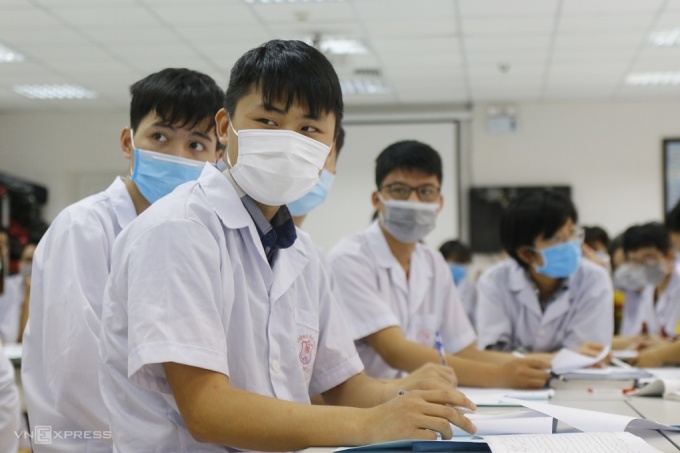
Students of Hanoi Medical University in a class in March 2020. Photo: Thanh Hang
Professor Dang Van Phuoc believes that medical admissions should include an interview round. According to him, after passing the preliminary round with graduation exam scores, academic records or competency assessment scores, candidates will be interviewed by a panel of doctors, psychologists, and lecturers about their social knowledge, views on serving people, ethics and other qualities to see if they are suitable for the medical profession. In addition, candidates need to have an essay explaining their reasons, passions and orientations when choosing this profession.
This is also the admission direction that Dr. Dam Quang Minh and Dr. Le Viet Khuyen, Vice President of the Association of Vietnamese Universities and Colleges, agree with. According to Mr. Khuyen, oral exams are a form of selection applied by many famous schools in the world.
"Previously, I studied at Lomonosov University in Russia. After the preliminary round, candidates had to take a written test. After the written test, candidates continued with the oral test. If they did not pass the next rounds, they returned to apply to local universities. That is the way to choose real talent," Mr. Khuyen said.
This is similar to medical school admissions in many countries around the world such as Japan and the US.
Dr. Nguyen Dinh Nam, who graduated with a doctorate in medicine from Kyoto University, said that in Japan, most schools recruit medical students in two rounds. In round 1, candidates must pass tests in Natural Sciences (Physics, Chemistry, Biology), Mathematics, and English. In round 2, they must write essays and participate in interviews.
In the US, Trinh Mai Chi, a doctoral student in medicine at Johns Hopkins University, said the final interview round is one of the deciding factors in whether a candidate is accepted or not.
Specifically , in round 1, medical schools consider university academic performance and M CAT test scores (with 4 parts, including: Biological and biochemical basis of living systems; Chemical and physical basis of biological systems; Psychological, social and biological basis of behavior and Critical analysis and reasoning skills), certificate of completion of some university subjects (Math, Physics, Chemistry, Biology, Psychology, Sociology, Language ) and clinical experience of the candidate. In round 2, the school gives the topic and requires the candidate to write an essay. After two rounds, they call about 30% of the candidates for the interview round.
"Through the interview, they evaluate the candidate's behavioral skills and way of dealing with people," Chi said.
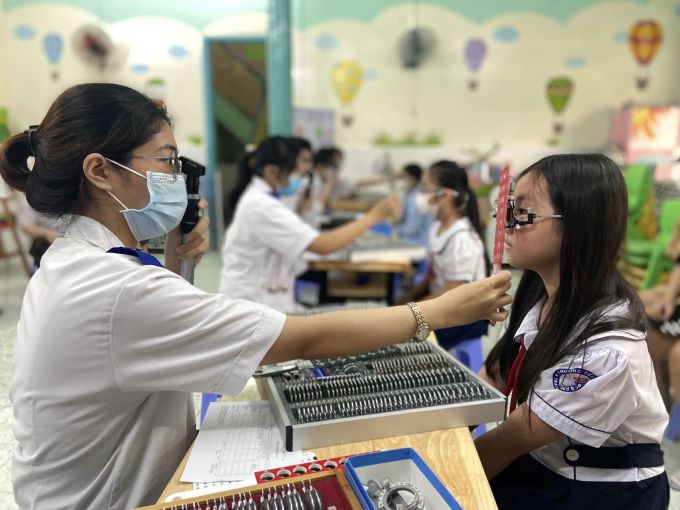
Students of Pham Ngoc Thach University of Medicine provide free eye examinations for students, March 2023. Photo: Youth Fanpage of Pham Ngoc Thach University of Medicine
In the context that medical and pharmaceutical schools still recruit students based on three subjects, Professor Dang Van Phuoc believes that they should be Math, Chemistry, and Biology. He respects but does not agree with the opinions encouraging the inclusion of Literature in the admissions mix because doctors also need to convince, sympathize, and share with patients.
"Doctors must convince patients with scientific basis and medical knowledge, not with sweet, empty words," said Professor Phuoc, recognizing that a person who is good at Math, Chemistry, and Biology has a good ability in Literature, enough to write, present, and communicate completely, even coherently and logically.
Furthermore, the medical field has a 6-year training period with a number of related subjects such as Hospital Life, Medical Psychology and Ethics, Health Education, Scientific Research Methods. In addition, during the training and practice at the hospital, students will be instructed by teachers and senior colleagues, practicing medical ethics, sharing skills, and understanding patient psychology. They are also taught how to write theses and medical records, so these skills can be supplemented during the learning process.
Professor Nguyen Huu Tu hopes that medical and pharmaceutical schools will use a common admission tool by unifying the exam subject combinations and ordering some units to organize exams to assess capacity and thinking. Candidates only need to take the exam once but can use the results to apply to many schools.
"This has the ability to filter out virtual information, ensure quality and reduce waste," said Mr. Tu.
Le Nguyen - Duong Tam
Source link


![[Photo] Nhan Dan Newspaper announces the project "Love Vietnam so much"](https://vstatic.vietnam.vn/vietnam/resource/IMAGE/2025/4/17/362f882012d3432783fc92fab1b3e980)
![[Photo] Closing of the 4th Summit of the Partnership for Green Growth and the Global Goals](https://vstatic.vietnam.vn/vietnam/resource/IMAGE/2025/4/17/c0a0df9852c84e58be0a8b939189c85a)
![[Photo] National Assembly Chairman Tran Thanh Man meets with outstanding workers in the oil and gas industry](https://vstatic.vietnam.vn/vietnam/resource/IMAGE/2025/4/17/1d0de4026b75434ab34279624db7ee4a)

![[Photo] Promoting friendship, solidarity and cooperation between the armies and people of the two countries](https://vstatic.vietnam.vn/vietnam/resource/IMAGE/2025/4/17/0c4d087864f14092aed77252590b6bae)
![[Photo] General Secretary To Lam receives French Ambassador to Vietnam Olivier Brochet](https://vstatic.vietnam.vn/vietnam/resource/IMAGE/2025/4/17/49224f0f12e84b66a73b17eb251f7278)





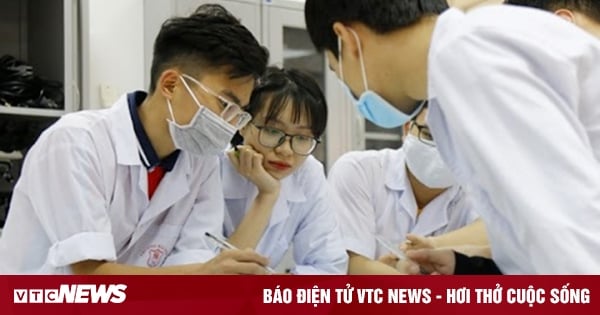



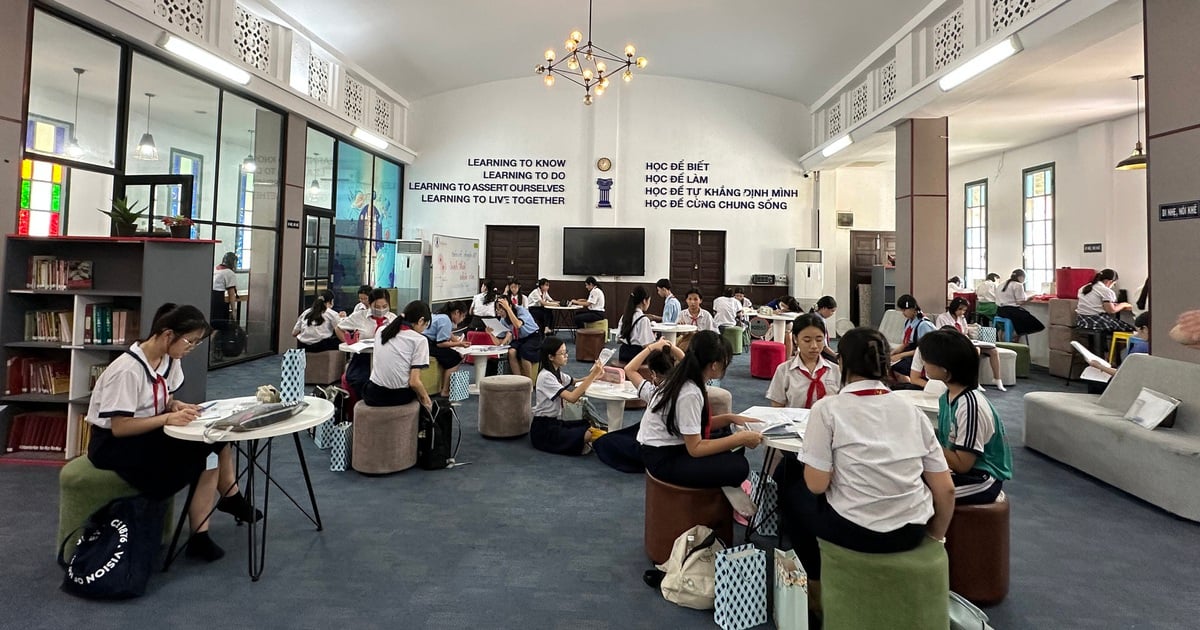

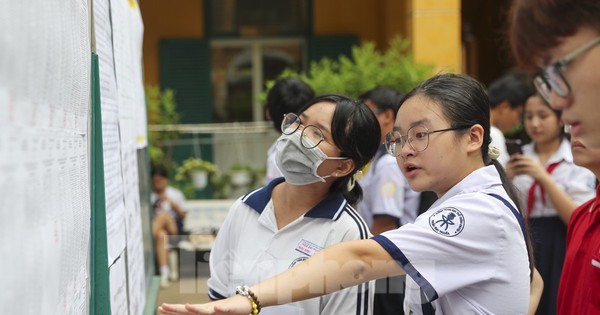













![[Photo] Welcoming ceremony for Chinese Defense Minister and delegation for friendship exchange](https://vstatic.vietnam.vn/vietnam/resource/IMAGE/2025/4/17/fadd533046594e5cacbb28de4c4d5655)


























![[Video] Viettel officially puts into operation the largest submarine optical cable line in Vietnam](https://vstatic.vietnam.vn/vietnam/resource/IMAGE/2025/4/17/f19008c6010c4a538cc422cb791ca0a1)
























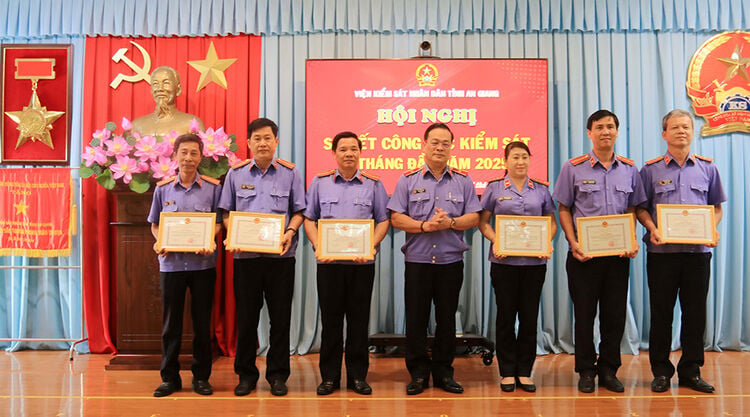















Comment (0)